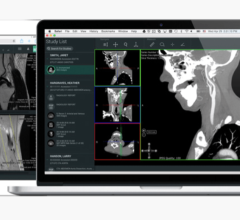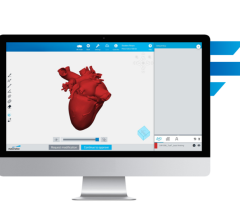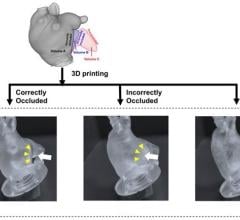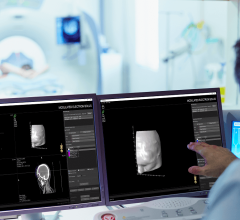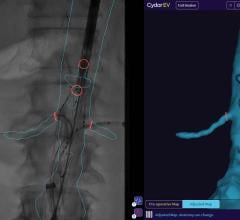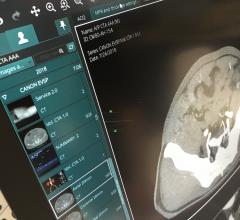
August 18, 2014 — Additive manufacturing (3-D printing) company Oxford Performance Materials (OPM) was named the "Best Global Company for 3-D Healthcare Innovation" by The New Economy Awards. The New Economy Awards, presented by The New Economy magazine, identify and celebrate innovative companies that are breaking new ground in the areas of technology, energy, business and strategy.
OPM received The New Economy Award for the company's development of additive manufacturing techniques with the ultra-high performance polymer poly-ether-ketone-ketone (PEKK). OPM's ability to print patient-specific functional and biocompatible prosthetic implants is proving to be disruptive technology in the healthcare industry. In February 2013, OPM received U.S. Food and Drug Administration (FDA) 510(k) clearance for its OsteoFab patient-specific cranial device, and became the first and only company with FDA clearance to manufacture 3-D printed polymeric orthopedic implants.
"We are honored to receive The New Economy Award for healthcare innovation," said Scott DeFelice, CEO and chairman of Oxford Performance Materials. "The rising cost of healthcare is a global issue that cannot be ignored. Hospitals are adopting our OsteoFab implant lines over metals and other polymer options because 3-D printed PEKK implants are the only solutions that combine low cost, biocompatibility, radiolucency and bone-like behavior. For the surgeon, OPM products are easier to implant, modify and observe, and studies have shown that our OXPEKK formulation is osteoconductive—meaning bone grows onto the surface of our implants—and this leads to better fixation to the patient's own bone."
OPM technology is also designed to reduce the overall "cost of ownership" to the customer, by decreasing operating room time, hospital length of stay and procedure complications. In addition, OsteoFab customers do not pay a premium for the 3-D printed implant.
"What is exciting about our technology is that additional complexity does not necessarily increase manufacturing cost," said Severine Zygmont, president of OPM Biomedical. "As a result, we believe that additive manufacturing has the potential to not only improve patient outcomes, but fundamentally provide improved healthcare in orthopedics on a global scale for developed and developing countries. These are disruptive changes that will allow the industry to provide healthcare to more people at a lower cost."
For more information: www.oxfordpm.com


 June 25, 2024
June 25, 2024 
